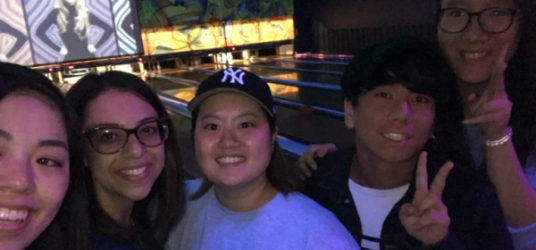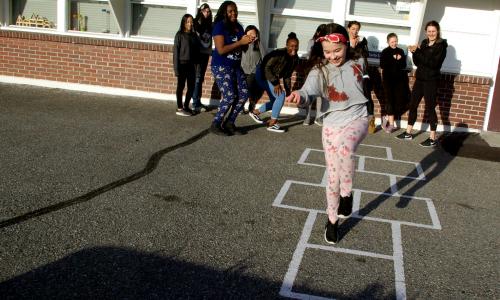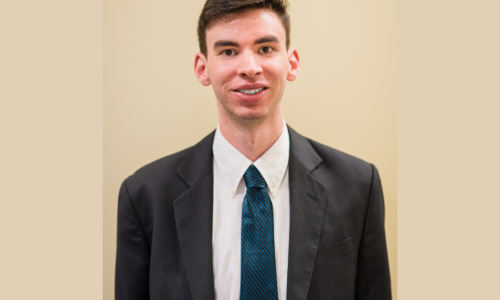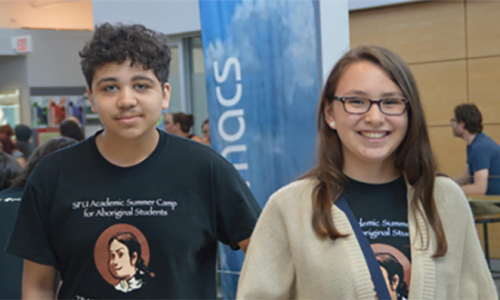
He said: “Chinese people are so different.”
I said: “Not just Chinese hhh [awkward laugh].”
This was the point at which my relationship with my housemate changed for the better. It was hard, and took a long time, but it was worth it.
School had just started and I had a new housemate. The first day I met him was at dinner with our host family. I remember that dinner as being one of the hardest times I’ve had in my life.
Like myself, my housemate is an international student, but we are not from the same country. I am Chinese and he is Japanese. The first time I saw him, he didn’t look happy, and through a look in his eyes, I could tell he didn’t like me. I felt confused about why he didn’t talk to me; as far as I knew, all he knew about me was that I was his housemate from China.
Dinner time continued to be the longest time of my day, and I would try to finish my meal faster to escape the desperate feeling of being glared at and disliked...I didn’t feel good about it.
After a few days, we both went to a concert on a Friday night. The concert finished very late. My host father told us to go home together to make sure both of us were safe. I was nervous; after all, this person had been unkind and dismissive to me.
I spotted my housemate when the concert ended, with a group of his friends with him. I observed that they seemed confused about where to go next, they were checking their phones and looking around for directions. I was tempted to keep to myself, as I had been feeling so uncomfortable around him due to the assumptions he was making about me. But in order to satisfy my host father’s wishes, I decided, that’s it, and I walked over to see if I could offer some help. It was a very scary decision for me, because I didn’t know who they were, whether they were good guys, or whether they might cause me harm.
It was really cold that night; my whole body was almost frozen. We were all cold. After a short conversation, the group confirmed that they were lost and didn’t know how to get home, and that they all lived in different areas and in different directions. I was able to tell them how to get home quickly and safely.
When one of my housemate’s friends left, he said “谢谢”, thank you, in Chinese to me. I was shocked; I said “no worries.”
After my housemate’s friends had left to make their way back home, my housemate and I got on the Skytrain to go to our place. It was so late that we had missed the last bus when we got off the Skytrain, so we had to walk to home. This gave us the chance to have a conversation privately. It was the first time we had a talk, just us.
He said: “Chinese people are so different.”
I asked: “why do you said that?”
He told me about his previous homestay family, who had been Chinese. This host family had treated him poorly and they never talked with him. He felt he was excluded in that family and he was very uncomfortable living there. His previous housemates were Chinese students as well, and they never talked or had dinner with him, either. He told me about all his bad experiences without any reservation. Finally, I understood why he threw that unfriendly attitude towards me on the first day that I met him.
I said: “Everyone is different, we can’t judge a group of people just because one of them gave you a bad experience.”
And he said: “Yes.”
After that night, we talked a lot at every dinner, we found out that we had the same hobbies, we always watched TV together, and we even baked together sometimes. We would still have been strangers sharing a house if I hadn’t taken the chance of offering him and some of his friends help that night, and if he hadn’t told me his story.
When people don’t get to know you, and they are not very friendly to you, there might be some unnecessary misunderstanding behind it. Here are some tips to handle this situation:
-
Make a conversation, share your story with others
-
Be optimistic
-
Walk a mile in other people’s shoes
-
Take a chance
-
Choose kindness
In our multicultural university, there are lots of people who come from different cultural backgrounds, and when they study together, there might be some problems that come up. The fundamental approach to deal with this is to try and understand other’s experiences and listen to their stories.
Share stories with each other, and make more friends!
Beyond the Blog
-
Connect with the Global Student Centre.













